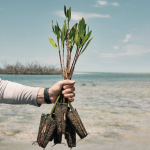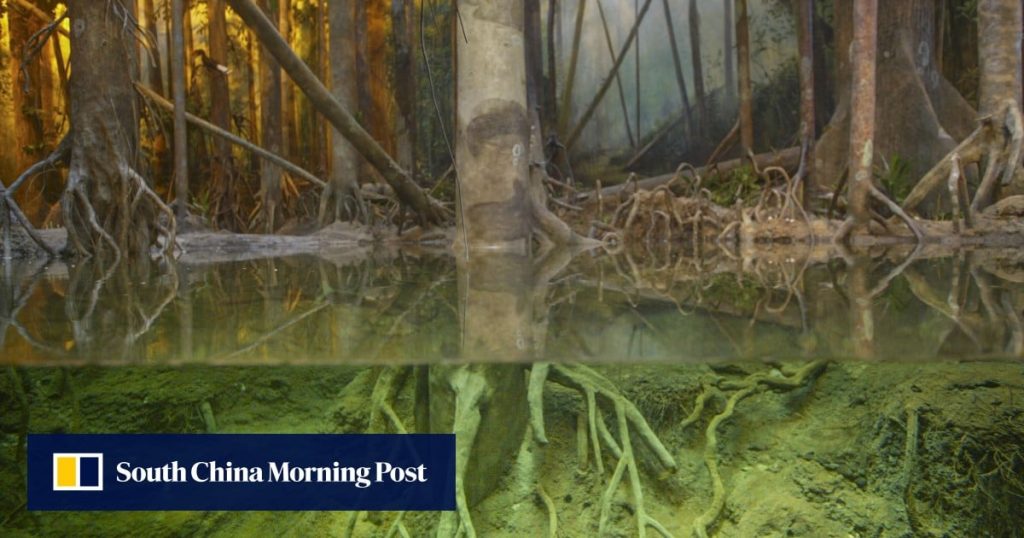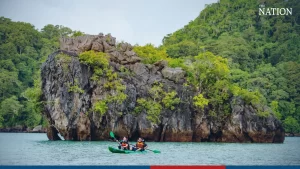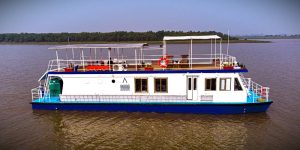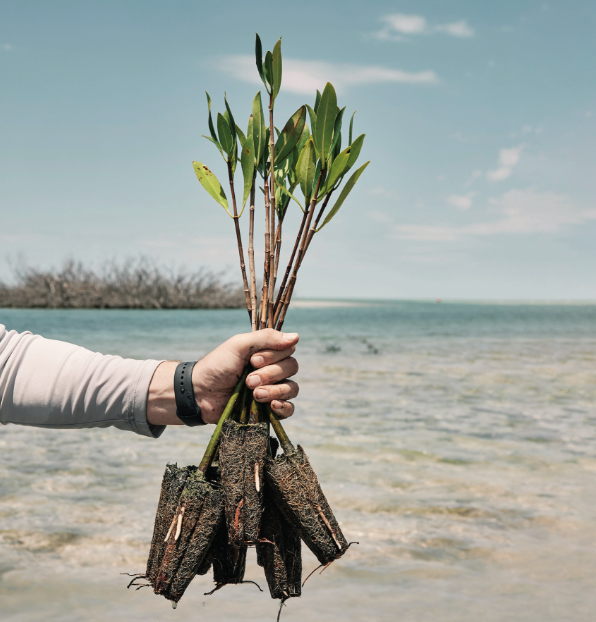Mangroves: Key Weapon in Climate Change Battle
In a bid to protect the critical mangrove forests on Mafia Island, a nascent eco-tourism project is being launched with the hope that it can help fund work to patrol the Marine Protected Areas vast mangrove forest spanning over 5,000 hectares. Mangroves play a crucial role in combating climate change by acting as carbon sinks, absorbing significant amounts of carbon dioxide. Additionally, they offer a range of benefits including protecting biodiversity, purifying water, and safeguarding coastlines from erosion caused by rising sea levels. The project on Mafia Island faces challenges from locals who seek to cut down coastal vegetation for firewood, as well as from tourist developments eyeing tree clearing to enhance beach access.
source=www.scmp.com
As governments and conservationists convene at the Cop28 summit, there is growing momentum to acknowledge the important role of nature, particularly mangroves, in addressing the climate crisis. The latest draft of the agreement to be discussed at Cop28 recognizes the contribution of nature in reducing greenhouse gas emissions and supporting communities in adapting to the impacts of climate change. Erick Thohir, Indonesias coordinating minister for maritime affairs and investment, described mangroves as “remarkable trees that become guardians for our archipelago.” Indonesia, with the largest mangrove area in the world at 3.36 million hectares, relies on these forests to protect its coasts, preserve biodiversity, and boost local economies through eco-tourism and carbon markets.
source=www.scmp.com
However, restoring and protecting mangroves is not without its challenges. Ailars David, a marine scientist and conservation warden on Mafia Island, highlights the need for knowledge and expertise in restoring mangroves, which many practitioners lack. Successful mangrove restoration requires understanding factors such as soil quality and water pH. Pieter van Eijk, head of deltas and coasts at Wetlands International, points out various threats to mangroves, including shrimp farms and infrastructure development. He emphasizes the need for community engagement and ownership in restoration projects to ensure long-term success, as well as avoiding wasteful spending on unsuccessful initiatives.
source=www.scmp.com
The international interest in mangroves at Cop28 could potentially open doors for increased financing and capacity-building for projects like the one on Mafia Island. Mapping the conservation areas and quantifying the carbon sequestration potential of the mangroves can pave the way for accessing carbon and biodiversity credits markets. In addition to these conservation efforts, David emphasizes the importance of mobilizing young people to understand and protect the ocean. By developing a network of youth equipped with knowledge and action plans, the hope is to create a sustainable future for our oceans.
source=www.scmp.com
